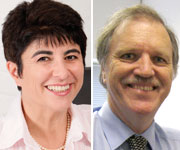MANY of us are deeply ashamed of the way Australia treats asylum seekers. Our politicians and media obsess about the way they reach our shores, but, as doctors, our role is to care for them and to advocate for their best interests.
We have become increasingly concerned about their wellbeing. An editorial in the MJA supports the investigation by the Commonwealth Ombudsman into suicide and self-harm in Australian immigration detention facilities, and demands action on this crisis.
With more than 1100 incidents of threatened or actual self-harm in these facilities in the past financial year, action is urgently needed. As the editorial authors say, it is well known that the detention environment is harmful, and that time in detention is associated with deteriorating mental and physical health.
Australia resettles about 14 000 refugees annually — only a small proportion of the 15 million worldwide. Asylum seekers represent only 2% of Australia’s annual migration intake, yet immigration detention costs in this financial year will be more than $800 million. Surely this money would be better spent on community integration, education and health care.
Australia is a country that has thrived on immigration, and refugees have made large contributions to our society. Australian medicine has also benefited greatly.
Many members of our profession were once refugees, or are the children of refugees. The MJA recently published an inspiring account (MJA Careers, 5 September 2011) of a remarkable Rwandan medical student, representative of the latest generation of refugee doctors.
The Refugee Health Network of Australia is a national collaboration of over 140 doctors and other health service providers attempting to deliver the health care that refugees so desperately need. Refugees may be unvaccinated, nutritionally deficient, psychologically traumatised and have chronic and infectious diseases. Asylum seekers have all of these problems, but also have great difficulty accessing adequate care because of Medicare ineligibility and poor access to interpreters.
It is our professional responsibility to sometimes speak out on policy issues that affect health. The profession can take some pride in its contribution to many public policies (like those that have helped reduce smoking deaths).
Continuing in this tradition, the president of the AMA stated at the recent AMA Parliamentary dinner: “The AMA believes the system of mandatory detention of asylum-seekers is inherently harmful to the physical and mental health of detainees … we urge both sides of politics to do all that is possible to ensure that these poor people are assured access to quality health care”.
The recent Centre for Policy Development report A new approach: breaking the stalemate on refugees and asylum seekers presents a balanced and insightful set of solutions. It calls for a bipartisan approach to ensure that detention centres are used “specifically for health, identity and security checks, with a 30 day time limit for adults and a 14 day time limit for children”.
We proudly join our voices to this call, and hope for urgent action to end the physical and mental harm caused by prolonged periods of immigration detention.
Dr Annette Katelaris is the editor of the MJA. Professor Mark Harris is executive director of the Centre for Primary Health Care and Equity at the University of NSW.
This article is reproduced from the MJA with permission.
Posted 19 September 2011

 more_vert
more_vert
Part of the mandatory time should be spent on intensive disease screening, TB, leprosy, intestinal worms… all conditions largely eradicated in the Oz population and I don’t want them back!! Combine with education as in compulsory English and they are then working towards a skill useful even if they are returned “home” so alleviating the “boredom” that contributes to depression.
Refugees are those who have a well-founded fear of persecution on the basis of a number of grounds including race, religion and political views. How much money a person has is irrelevant to whether or not they are refugees. Whether or not they have enough money to fly business class is irrelevant. Refugee populations include skilled and unskilled people. Australia has signed an international agreement committing itself not to return people to situation where they are in danger of being persecuted. Australia is a wealthy country able to extend support to those who need it. Mandatory detention of asylum seekers has been found to be in breach of our international obligations to protect human rights. Shame on our Governments.
The problem is that many of use recognise that like earlier boat people many of those arriving are in fact economic refugees not deserving of being accepted as true refugees.
Many arrived in Malaysia and elsewhere having flown in Business Class with plenty of money to pay their way here.
Until these economic refugees can be excluded many of us will not support the process
I’m for controlled immigration and careful screening for both health reasons and political ones.
While it is true detention for processing may be stressful, attributing it as being the cause of later revealed psychopathology, has a dash of “Post hoc ergo propter hoc.” about it. If people have come from situations of horror, and through risky situations to get here, these may be the cause of the symptoms that show up – not the detention itself.
Studies of immigration and war published back in the 1960s and 1970s suggested that people coped when the stress was acute and manifested symptoms when the pressure was off, and that immigrant populations did contain increased proportions – though still minorities – of people who were either delusional or lying about what they were fleeing. Screening is necessary.
As Editor of the weekly newspaper, Australian Doctor, I would like to add my voice to this call.